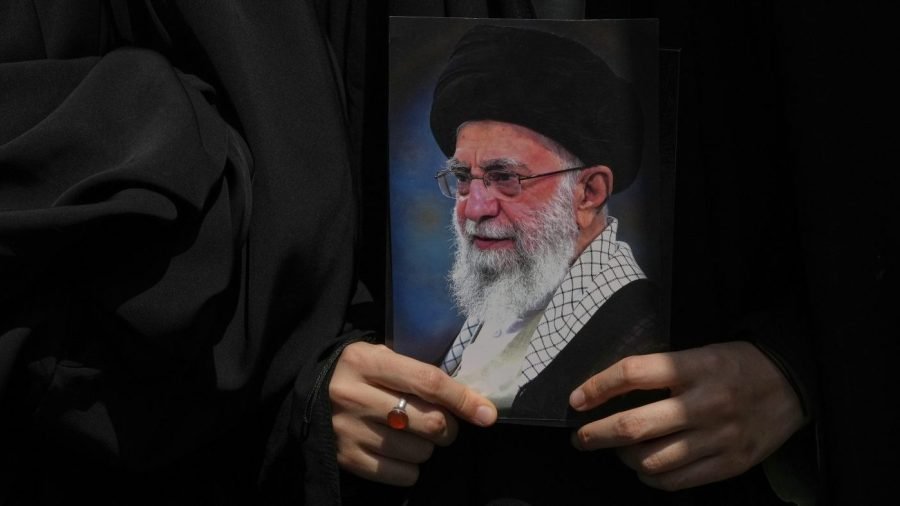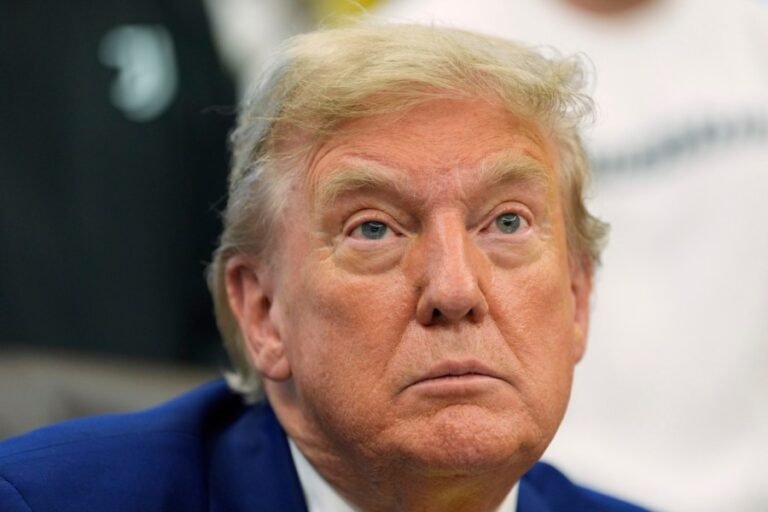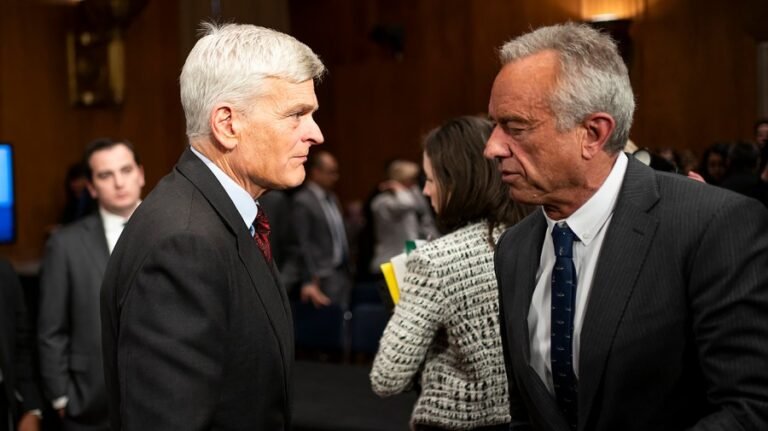
One thing we have learned about President Trump is that he means what he says. No more TACO — “Trump Always Chickens Out.” He threatened mass deportations, and we have them. He threatened draconian tariffs, and we have them. He threatened law firms and universities, and many have caved. He threatened Iran with a strike on its nuclear sites — and well, you know the rest.
Trump claimed he had “obliterated” Iran’s nuclear program. The Pentagon said our bombers have inflicted “severe damage.” But experts cautioned it is still too early to assess the extent of the damage. And we can only speculate on what Iran might do to retaliate.
The situation is fraught with geopolitical risk. But the strike has most likely left Iran with few viable options.
In an address to the nation Friday night, Trump said, “There will be either peace, or there will be tragedy for Iran far greater than we have witnessed over the last eight days. Remember, there are many targets left. Tonight’s was the most difficult of them all by far, and perhaps the most lethal. But if peace does not come quickly, we will go after those other targets with precision, speed and skill.”
So we have to take seriously Trump’s astounding message to the world from a week or so ago, when he said he had rejected a proposal from Israel to assassinate Iran’s supreme leader, Ayatollah Ali Khamenei. On Truth Social, Trump pursued the point: “We know exactly where the so-called ‘Supreme Leader’ is hiding. He is an easy target but is safe there — we are not going to take him out (kill!), at least not for now.” This left the option to assassinate the Supreme Leader on the table.
That should have been an “are you serious?” moment, even for Trump. Heads of state and heads of government just about never decide to kill each other, even in wartime. For if you to do it to them, then they may do it to you. And assassination is illegal under international law.
There would be tremendous risks in taking out Khamenei. Going after a man who is seen to be both holy as well as a political leader would make the regime more popular internally. It would transform Khamenei into a martyr. And the U.S. going after a foreign leader, however despicable he may be, is a red line that we don’t cross.
Or is it?
Political assassination is nothing new in Trump’s arsenal of weapons. He owned up to a stated desire to assassinate Syria’s Bashar al-Assad in 2017. Had he done so, it would have become America’s first targeted killing of a foreign leader.
Trump decided to respond to the Syrian government’s chemical attacks on civilians with airstrikes on military targets instead of targeting Assad directly. Those airstrikes were also unlawful under international law, since the U.N. Charter does not recognize humanitarian intervention as a justification for use of force.
Trump’s decision kept the U.S. from crossing the Rubicon into the dark areas of assassination of foreign heads of state. He eventually settled for top Iranian general Qassem Soleimani, whom Trump ordered assassinated in a January 2020 drone strike. Trump said many Americans had been killed by Soleimani. A U.N. agency on extrajudicial killings concluded that the Soleimani strike was “unlawful.”
Trump claimed that the Soleimani strike was legally permissible because the general posed an “imminent” threat. America targets individuals it has designated as “terrorists,” but whom the military is not officially fighting. The State Department had designated Soleimani as a terrorist, but Iran is not covered by the congressional authorizations for the use of military force that the Bush, Obama and Trump administrations employed to pursue al-Qaeda-linked terrorists and ISIS. Those authorizations are why the killing of ISIS leader Abu Bakr al-Baghdadi was not considered an “assassination”; Baghdadi was a combatant in a congressionally sanctioned military conflict the U.S. was fighting.
“Assassination” is banned under President Gerald Ford’s Executive Order 11905. That order “prohibited any member of the U.S. government from engaging or conspiring to engage in any political assassination.” Executive Order 12333, signed by President Ronald Reagan in 1981, prohibits the U.S. intelligence agencies from engaging in assassination, but with assassination left undefined. Webster defines assassination as “The act of killing or murdering, by surprise or secret assault; murder by violence.”
The closest thing we have to an official definition is contained in a 1989 interagency document known as the Parks Memorandum, which defines assassination as an act of murder for political purposes. It was created to “explore assassination in the context of national and international law” and make sure that the U.S. Army’s Field Manual complied with EO 12333. Parks concluded that the “clandestine, low visibility or overt use of military force against legitimate targets in time of war, or against similar targets in time of peace where such individuals or groups pose an immediate threat to United States citizens or the national security of the United States … does not constitute assassination … and would not be prohibited by the proscription in EO 12333 or by international law.”
The ban is established by presidential order, not statute. Trump knows how to issue executive orders. He can readily change the landscape with a new order, if he is so advised.
Under international law, killings done either in national self-defense or carried out as part of a legally predicated armed conflict are lawful, and so likely wouldn’t be considered “assassinations.” Under those circumstances, a head of state is a legitimate military target. There is ongoing dispute anyway about the circumstances under which international law is binding on the U.S. — Trump has been dismissive of it, and its precepts cannot be enforced against the U.S. anyway.
If you go for a foreign leader such as Khamenei, you don’t know that whoever replaces him won’t be far more malicious; that a resulting leadership vacuum and social chaos might not engulf your interests too; that dead leaders can’t negotiate; or that the martyred leader might not be far more powerful in death than in life. Khamenei is 86. The Bible reminds us that “To every thing there is a season, and a time to every purpose under the heaven.”
But with Trump, assassination stays on the table. He has sharp elbows. As his son-in-law Jared Kushner put it in a 2020 interview, “We live in a very dangerous world,” and Trump, he said, “knows that it’s a full-contact sport. This is not touch football.”
James D. Zirin, author and legal analyst, is a former federal prosecutor in New York’s Southern District. He is also the host of the public television talk show and podcast Conversations with Jim Zirin.


